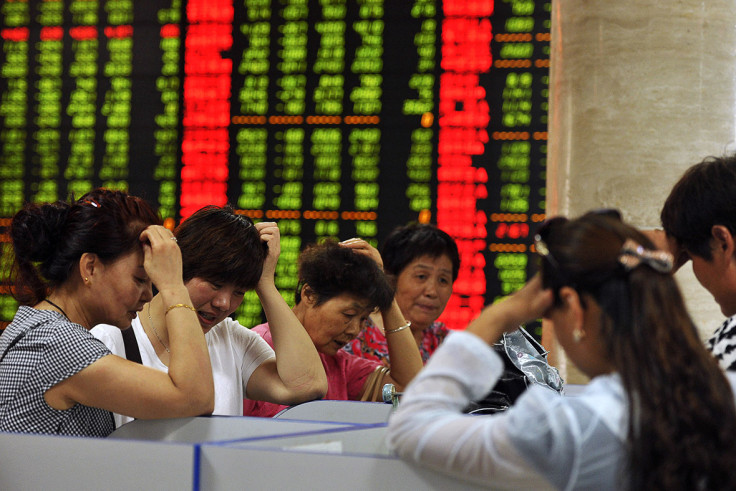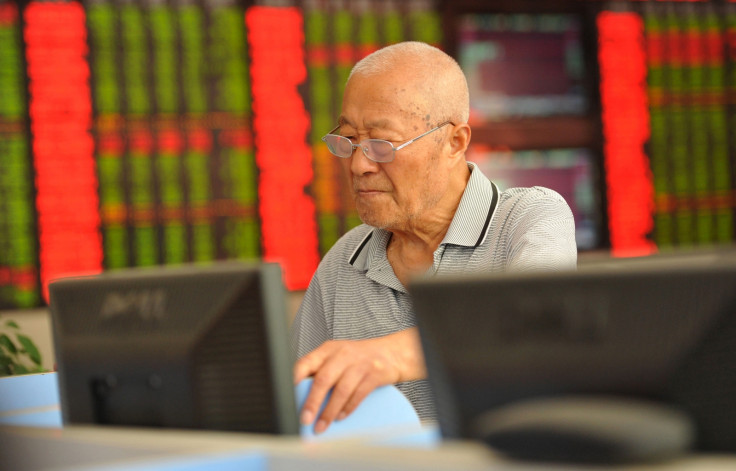FTSE 100 endures further losses despite Chinese stimulus measures

The FTSE 100 fell by more than 1.5% on Wednesday 26 August, the second day after the stock market crash in China.
Hopes were high after the Footsie gained 3.09% yesterday (25 August). The benchmark reported a major jump just minutes after the People's Bank of China announced it would cut the requirement reserve ratio for investors by 0.5 percentage points, in the seventh cut since November 2014.
The cut means the ratio will be at 18%, down from 18.5%. It was announced to encourage investments on the falling Shanghai Composite index, China's main stock market.
The Bank also announced it is cutting the one year lending interest rates by 0.25 percentage points, from 4.85% to 4.6%, as well as the deposit rate, which has been cut to 1.75% from 2%.
Sanctions from the People's Bank of China were largely expected by analysts after the Shanghai Composite suffered a loss of more than 8% on 24 August dubbed 'Black Monday'.
On Wednesday, the Shanghai Composite lost 1.27%, a less severe loss than the previous days, but the index was not saved by the measures imposed by the People's Bank.
The FTSE 100 hit its lowest point since 2013 in a response to the week-long fall of the stock market in China on Monday (24 August)<sup>. The blue-chip nose-dived following the news, with miners and other natural resources companies leading the fall.
It came as no surprise that Glencore, Anglo American and BHP Billiton were the biggest fallers, as commodity prices have already been hitting new lows in the last months and the stock market crash in China is expected to drag down demand from the Asian markets severely.
Germany's DAX opened 160 points lower on Wednesday, a decline of -1.68%, after recovering to levels from before Black Monday on Tuesday. The French CAC 40 opened 70 points lower, while the Euro Stoxx 50 dropped more than 2%.

Rabobank analysts Philip Marey and Stefan Koopman said that the stimulus efforts by the People's Bank of China did were short term efforts. They said the measures "gave market sentiment a boost with European stock markets closing higher".
"However, the impact faded later as US stock markets, after an initial boost, headed south. This morning, Asian markets are showing a similar pattern," they wrote.
In the US, the Dow Jones Industrial average suffered tremendously on Black Monday, falling more than 1,000 points in early morning trading. It closed on 15666.64 on Tuesday, a drop of 4.8% or 793.24 points from its opening point on Monday. The S&P 500 dropped by a total of 5.2% since Monday, both erasing all gains made in 2015.
Meanwhile, analysts have raised issues with how global investors look at the Shanghai Composite as a benchmark of the financial climate worldwide. Although the macroeconomic industrial results in China have provided more bad news, economists argued that might have more to do with its shift to a service dependent economy.
Meanwhile, Marey and Koopman said that for example a rise in the German Business Climate Index would be a better indicator to look at.
The Chinese Yuan fell after the measures by the PBoC, now trading at CN¥6.42 per US Dollar, from CN¥6.21 before the devaluation started in the beginning of August.
© Copyright IBTimes 2024. All rights reserved.









